|

www.Overstock.com
Sonny Fortune - Saxophone
Michael Cochrane - Piano
David Williams - Bass
Steve Johns - Drums
The Kitano New York
And 441 Records
(Kitano NY Jazz Lounge)
66 Park Avenue @38th Street
New York, NY
212.885.7119
Produced by Gino
Moratti
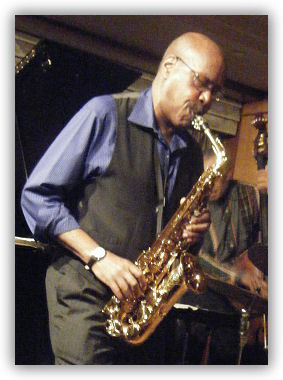
Jazz at The Kitano New York is presented Wednesday
through Saturday nights, and tonight's Sonny Fortune Quartet raised
the roof. Sonny Fortune, who can play alto, soprano, tenor, and baritone
saxes, as well as clarinet and flute, is going strong after decades of performance
in concerts and recordings. He has played with Elvin Jones, Miles Davis,
McCoy Tyner,
and George Benson, among numerous artists, and more recently with his own
band, tonight's ensemble. Michael Cochrane was on piano, David Williams
on bass, and Steve Johns on drums. I was joined for this second set by
Marco Losavio, Publisher of JazzItalia.net, who was in New York to catch
some jazz.
The set opened with Sonny Fortune on soprano sax for Henry Mancini's "Charade".
Echoing notes on sax extended this gorgeous melody, in between Fortune's atonal
flourishes and brassy melancholy. While Michael Cochrane and David Williams
kept the piano and bass uncluttered, Fortune took the ballad to a stormy level.
Well into the piece, Cochrane took the lead in rich, steady keyboard rhythms. At
one point, Jackson seized the theme on bass, breaking up musical segments, while
Fortune's sax played clean, clear ornamentations. "You
and the Night and the Music" was next, with Fortune now on powerful tenor
sax. This band had enthusiasm, and it showed in this ballad. A roller-coaster of
sound ensued, expanded by Steve Johns' pulsating percussion. Jackson's buoyant
bass joined Cochrane's jazzy piano, and then Johns took a solo drum riff, embellishing
the keyboard rhythms with rapidly swirling tempos.
"Awakening", from Fortune's Blue Note
"Trilogy Collection", had Fortune on flute, and this exotic song was evocative
of birds awakening, in jazzy-new age fusion. Johns added some whistling effects,
and Cochrane enriched the sound with repetitive chords, for an upbeat, ethereal
harmony. Fortune's flute created an echoing refrain. The backup kept shifting, from
rhythmic piano accompaniment, to an eerie bell, to a wooden shaker, before Fortune
ended the piece in whispering notes, highs and lows. Miles Davis' "All
Blues" brought out Fortune's tenor sax again, and this is when he let
it all go. Fortune's facial muscled popped with passion, and he ended on ever-lowering
notes that finally grew still.
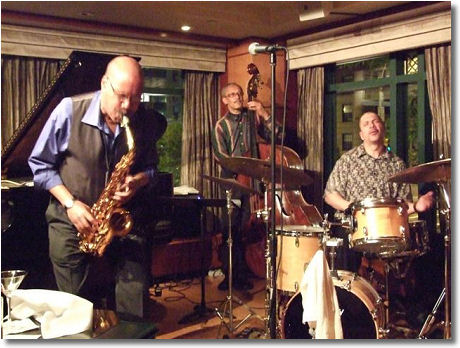 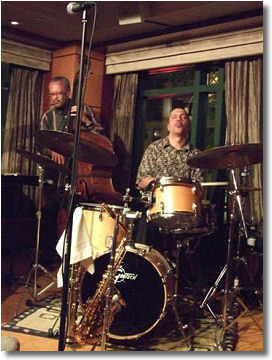
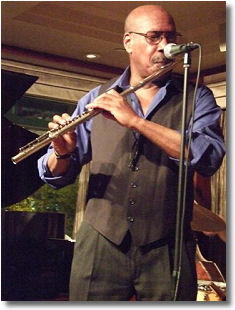 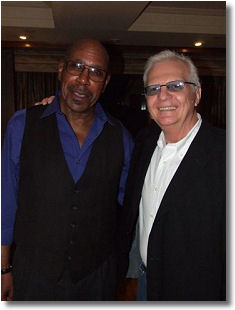
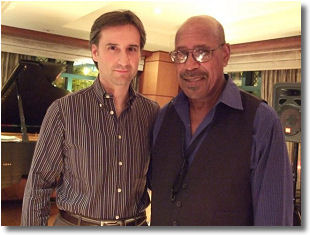
photo courtesy by Roberta E. Zlokower
Insert an opinion
|
© 2000 - 2026 All the material published on Jazzitalia is exclusively owned by the author. Moreover it is protected by International Copyright, so it is forbidden any use of it which isn't authorised by the rights' owner.
|
This page has 3.652 hits
Publishing Date: 21/07/2009

|
|

